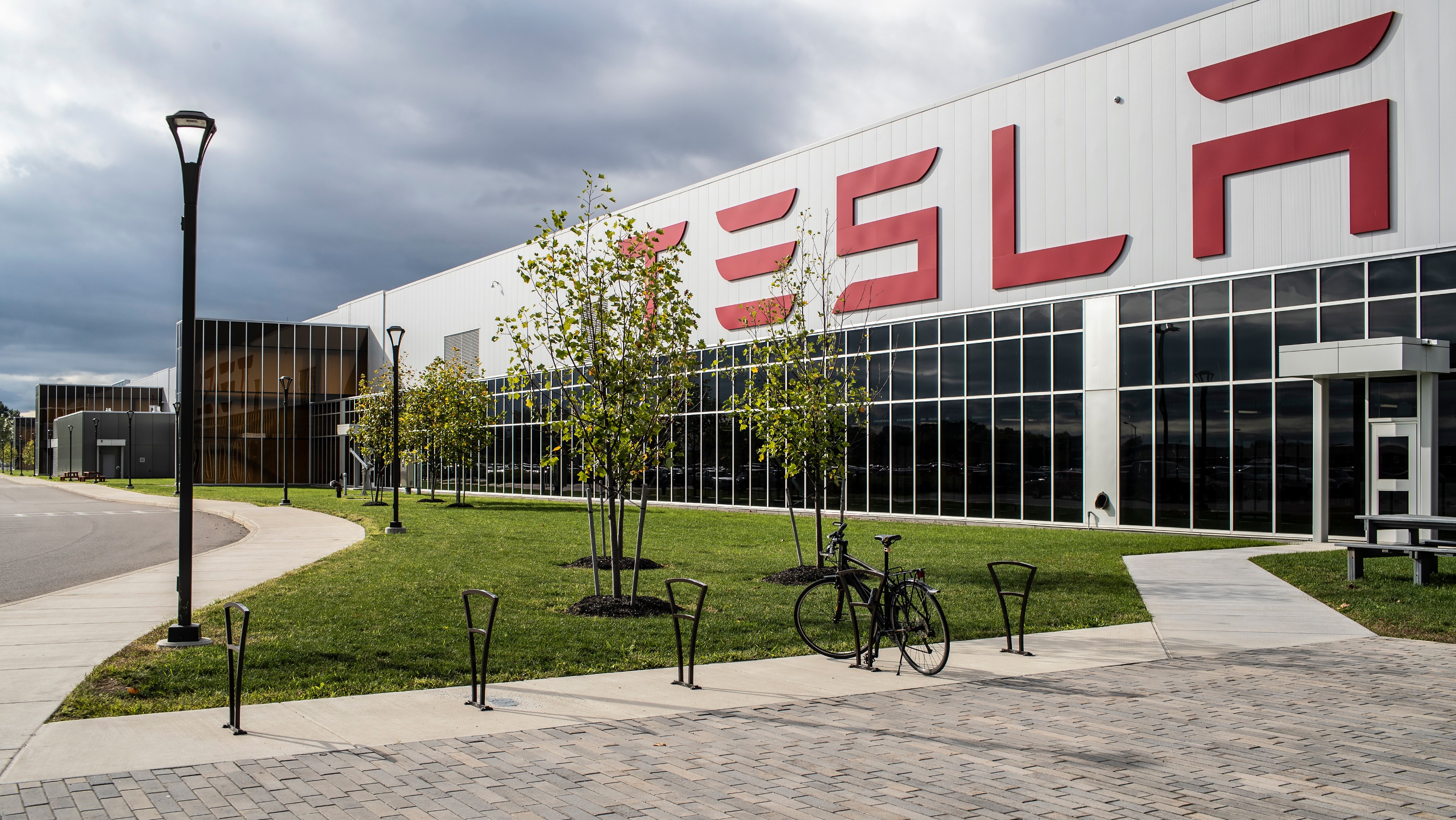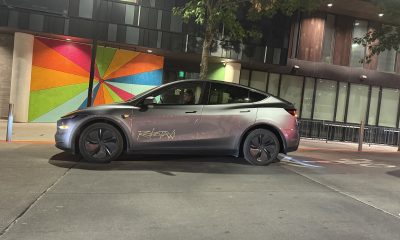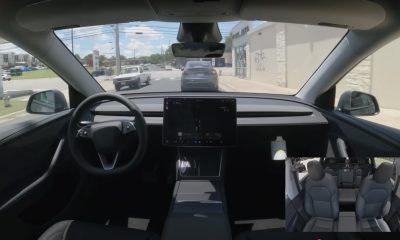It is not rare to see Tesla enthusiasts from India asking CEO Elon Musk about updates on the electric car maker’s entry into the country. This is especially notable considering that some India-based EV enthusiasts have been holding on to their Model 3 deposits for several years now. Musk, for his part, has remarked that it is quite difficult to enter India as an electric car company due to local protectionist policies. But perhaps Tesla’s entry into India does not necessarily have to be driven by its electric cars. Perhaps a more viable strategy is to enter India through Tesla Energy.
Tesla’s entry in India has pretty much been in the air for years. Back in June 2017, Elon Musk noted that Tesla was “In discussions with the government of India requesting temporary relief on import penalties/restrictions until a local factory is built.” Almost a year later, Musk posted an update on Tesla’s impending India push on Twitter, stating that while the company would love to enter the country, there are some “challenging government regulations” that need to be addressed first. The CEO then stated that Tesla will be in India as soon as then CFO Deepak Ahuja, who hails from the country, believes it’s the right time.
References to India’s challenging regulations were echoed by Musk a year later, following the 2019 SpaceX Hyperloop Pod Competition. After the competition, the Avishkar Hyperloop team from IIT Madras asked Musk when Tesla will be in India. Musk reportedly responded that the company may enter the country in about a year’s time. Since then, Musk has been quite silent about Tesla’s India push, until recently, when he apologized to an EV enthusiast from the country who has held a Model 3 reservation for four years now.
Challenging regulations aside, the idea of Tesla establishing a dedicated electric vehicle factory in India may not be the optimal idea for now. As noted by Galileo Russell in a recent livestream on his Hyperchange YouTube channel, vehicle sales in India are dominated largely by two-wheeled or three-wheeled vehicles, thanks in part to the population density of the region. There is an emerging electric vehicle market in the country, but it will likely take years before it matures enough to develop a considerable electric passenger vehicle segment.
Best-selling passenger cars in India tend to be lower-priced and smaller as well, making the market very competitive. This means that Tesla, whose smallest vehicle is a premium midsize sedan in the form of the Model 3, would likely have challenges attracting the conventional Indian car buyer. The story completely changes if Tesla has a smaller, more affordable vehicle in its lineup, of course, but the release of such a car could still be a few years out.
With this in mind, does it mean that it won’t be worth it for Tesla to enter the Indian market? Absolutely not. While India may not be a very attractive market for large premium vehicles, the country is the perfect place to ramp an energy business that’s focused on solar panels and battery storage. Fortunately, Tesla actually has an Energy department that fits this bill, and the company is hard at work in ramping it up. Tesla Energy could then be the perfect entry point in India, on account of the country’s push towards sustainability. India’s power grid is known for its areas of improvement as well, making it a good fit for Tesla’s battery storage solutions.
Provided that Tesla Energy could price its solar panels and battery storage devices competitively, the company could have a good shot at making an impact in the Indian market. Tesla already prices its solar solutions in the United States very aggressively, and with a dedicated facility in India (perhaps a Gigafactory India is in order?), the company could take over a good portion of the country’s residential and commercial market. Such would go hand in hand with Tesla’s next-generation batteries as well, which are expected to be cheaper to produce and far more durable and high powered compared to their predecessors.
Elon Musk
Tesla investors will be shocked by Jim Cramer’s latest assessment
Jim Cramer is now speaking positively about Tesla, especially in terms of its Robotaxi performance and its perception as a company.

Tesla investors will be shocked by analyst Jim Cramer’s latest assessment of the company.
When it comes to Tesla analysts, many of them are consistent. The bulls usually stay the bulls, and the bears usually stay the bears. The notable analysts on each side are Dan Ives and Adam Jonas for the bulls, and Gordon Johnson for the bears.
Jim Cramer is one analyst who does not necessarily fit this mold. Cramer, who hosts CNBC’s Mad Money, has switched his opinion on Tesla stock (NASDAQ: TSLA) many times.
He has been bullish, like he was when he said the stock was a “sleeping giant” two years ago, and he has been bearish, like he was when he said there was “nothing magnificent” about the company just a few months ago.
Now, he is back to being a bull.
Cramer’s comments were related to two key points: how NVIDIA CEO Jensen Huang describes Tesla after working closely with the Company through their transactions, and how it is not a car company, as well as the recent launch of the Robotaxi fleet.
Jensen Huang’s Tesla Narrative
Cramer says that the narrative on quarterly and annual deliveries is overblown, and those who continue to worry about Tesla’s performance on that metric are misled.
“It’s not a car company,” he said.
He went on to say that people like Huang speak highly of Tesla, and that should be enough to deter any true skepticism:
“I believe what Musk says cause Musk is working with Jensen and Jensen’s telling me what’s happening on the other side is pretty amazing.”
Tesla self-driving development gets huge compliment from NVIDIA CEO
Robotaxi Launch
Many media outlets are being extremely negative regarding the early rollout of Tesla’s Robotaxi platform in Austin, Texas.
There have been a handful of small issues, but nothing significant. Cramer says that humans make mistakes in vehicles too, yet, when Tesla’s test phase of the Robotaxi does it, it’s front page news and needs to be magnified.
He said:
“Look, I mean, drivers make mistakes all the time. Why should we hold Tesla to a standard where there can be no mistakes?”
It’s refreshing to hear Cramer speak logically about the Robotaxi fleet, as Tesla has taken every measure to ensure there are no mishaps. There are safety monitors in the passenger seat, and the area of travel is limited, confined to a small number of people.
Tesla is still improving and hopes to remove teleoperators and safety monitors slowly, as CEO Elon Musk said more freedom could be granted within one or two months.
News
Tesla launches ultra-fast V4 Superchargers in China for the first time
Tesla has V4 Superchargers rolling out in China for the first time.

Tesla already has nearly 12,000 Supercharger piles across mainland China. However, the company just initiated the rollout of the ultra-fast V4 Superchargers in China for the first time, bringing its quick-charging piles to the country for the first time since their launch last year.
The first batch of V4 Superchargers is now officially up and running in China, the company announced in a post on Chinese social media outlet Weibo today.
The company said in the post:
“The first batch of Tesla V4 Superchargers are online. Covering more service areas, high-speed charging is more convenient, and six-layer powerful protection such as rain and waterproof makes charging very safe. Simultaneously open to non-Tesla vehicles, and other brands of vehicles can also be charged. There are more than 70,000 Tesla Superchargers worldwide. The charging network layout covers 100% of the provincial capitals and municipalities in mainland China. More V4 Superchargers will be put into use across the country. Optimize the charging experience and improve energy replenishment efficiency. Tesla will accompany you to the mountains, rivers, lakes, and seas with pure electricity!”
The first V4 Superchargers Tesla installed in China are available in four cities across the country: Shanghai, Zhejiang, Gansu, and Chongqing.

Credit: Tesla China
Tesla has over 70,000 Superchargers worldwide. It is the most expansive and robust EV charging network in the world. It’s the main reason why so many companies have chosen to adopt Tesla’s charging connector in North America and Europe.
In China, some EVs can use Tesla Superchargers as well.
The V4 Supercharger is capable of charging vehicles at speeds of up to 325kW for vehicles in North America. This equates to over 1,000 miles per hour of charging.
Elon Musk
Elon Musk hints at when Tesla could reduce Safety Monitors from Robotaxi
Tesla could be reducing Safety Monitors from Robotaxi within ‘a month or two,’ CEO Elon Musk says.

Elon Musk hinted at when Tesla could begin reducing Safety Monitors from its Robotaxis. Safety Monitors are Tesla employees who sit in the front passenger seat during the driverless rides, and are there to ensure safety for occupants during the earliest rides.
Tesla launched its Robotaxi fleet in Austin last Sunday, and after eight days, videos and reviews from those who have ridden in the driverless vehicles have shown that the suite is safe, accurate, and well coordinated. However, there have been a few hiccups, but nothing that has put anyone’s safety in danger.
A vast majority — close to all of the rides — at least according to those who have ridden in the Robotaxi, have been performed without any real need for human intervention. We reported on what was the first intervention last week, as a Safety Monitor had to step in and stop the vehicle in a strange interaction with a UPS truck.
Watch the first true Tesla Robotaxi intervention by safety monitor
The Tesla and UPS delivery truck were going for the same street parking space, and the Tesla began to turn into it. The UPS driver parallel parked into the spot, which was much smaller than his truck. It seemed to be more of an instance of human error instead of the Robotaxi making the wrong move. This is something that the driverless cars will have to deal with because humans are aggressive and sometimes make moves they should not.
The Safety Monitors have not been too active in the vehicles. After all, we’ve only seen that single instance of an intervention. There was also an issue with the sun, when the Tesla braked abnormally due to the glare, but this was an instance where the car handled the scenario and proceeded normally.
With the Robotaxi fleet operating impressively, some are wondering when Tesla will begin scaling back both the Safety Monitors and Teleoperators that it is using to ensure safety with these early rides.
CEO Elon Musk answered the inquiry by stating, “As soon as we feel it is safe to do so. Probably within a month or two.”
As soon as we feel it is safe to do so.
Probably within a month or two. We continue to improve the Tesla AI with each mile driven.
— Elon Musk (@elonmusk) June 30, 2025
Musk’s response seems to confirm that there will be fewer Teleoperators and Safety Monitors in the coming months, but there will still be some within the fleet to ensure safety. Eventually, that number will get to zero.
Reaching a point where Tesla’s Robotaxi is driverless will be another significant milestone for the company and its path to fully autonomous ride-sharing.
Eventually, Tesla will roll out these capabilities to consumer-owned vehicles, offering them a path to generate revenue as their car operates autonomously and completes rides.
For now, Tesla is focusing on perfecting the area of Austin where it is currently offering driverless rides for just $4.20 to a small group of people.
-

 News5 days ago
News5 days agoTesla Robotaxi’s biggest challenge seems to be this one thing
-

 News2 weeks ago
News2 weeks agoTesla confirms massive hardware change for autonomy improvement
-

 Elon Musk2 weeks ago
Elon Musk2 weeks agoElon Musk slams Bloomberg’s shocking xAI cash burn claims
-

 News2 weeks ago
News2 weeks agoTesla features used to flunk 16-year-old’s driver license test
-

 News2 weeks ago
News2 weeks agoTesla China roars back with highest vehicle registrations this Q2 so far
-

 News2 weeks ago
News2 weeks agoTesla dominates Cars.com’s Made in America Index with clean sweep
-

 News2 weeks ago
News2 weeks agoTexas lawmakers urge Tesla to delay Austin robotaxi launch to September
-

 News2 weeks ago
News2 weeks agoTesla’s Grok integration will be more realistic with this cool feature



















